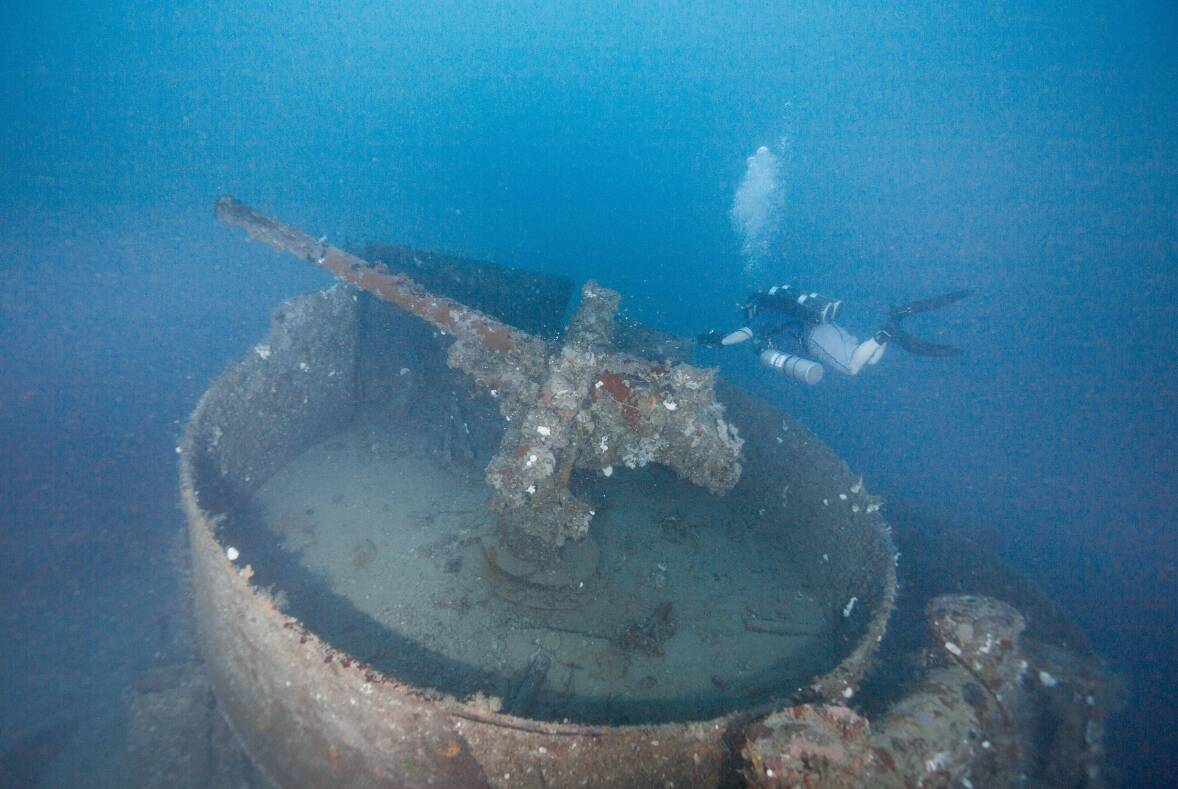
My nephew, Darren Tierney, spent his early adult years taking extreme tourism parties to some of the world's most remote and dangerous parts, including those in South America, Africa, the Middle East, and the South Pacific.
Initially, Darren studied marine biology and became a dive master and instructor. Some of his tour parties went diving with him at Guadalcanal in the Solomon Islands, among the sunken Japanese and American warships.
The adversaries had fought seven critical battles in World War II in 1942, 740 kilometres from the Queensland coast.
Military clashes ashore and unrelenting air combat supported the fierce naval struggle. Fortunately, US forces prevailed and ended Japanese attempts to disrupt supply routes to Australia. The key to the US victory was seizing the strategic airfields of the Solomon Islands.
Undoubtedly, China's military studied this WWII history. In 2019, they signed an MOU with the Solomon Islands for the giant Chinese aerospace and defence company AVIC to transform the country into an aeronautical hub, with the planned upgrade of three dozen airstrips.
Will these be used in future by China's airforce?
The Solomon Islands sit astride Australia's main sea trade routes to East Asia and North America. These islands, which were so critical to Japan in the 1940s, are now essential for China's plans in the 2020s to be the dominant power in the South Pacific.
China could achieve this goal by seeking out an increasing number of client states that will do its bidding in exchange for infrastructure funding. It appears Australia and its US allies have been "asleep at the wheel" as this Chinese strategy has unfolded.
China has become a real and present danger in our region. Australia and its AUKUS allies are ill-prepared.
The recent signing of the security agreement between the Solomon Islands and China has put this strategic nation firmly in China's orbit as a client state. The US belatedly sent its top Pacific adviser Lloyd Austin to the capital Honiara last month and is now thinking about setting up an embassy.
It's far too late.
Australia continues to give this national security threat a low priority.
For example, the junior Minister for International Development and the Pacific was sent to dissuade the Solomon Island Government from signing the agreement with China. The seriousness of the matter deserved the full attention of the Foreign Minister, or the Prime Minister.
It is not only this agreement that threatens Australia's security in the South Pacific. I wrote last year about the troubling bromance closer to home, between China and Papua New Guinea. There is a proposed 'fishing' (naval) port on the PNG island of Daru to be funded by China. This is just an afternoon's boat journey across the Torres Strait to Australia.
China seems intent on repeating in the South Pacific its successful African continent strategy, where Chinese money funded 900 infrastructure projects since 1956. This has made China the dominant "colonial" power in Africa in the 21st century.
The most indebted countries where China is now calling the tune are Angola, Sudan, Ethiopia, and Zambia, which all owe unsustainable infrastructure debt for many Belt and Road Initiatives. Consequently, they have joined a growing number of China's client states.
Will this happen in the South Pacific, right on Australia's doorstep, with the Solomon Islands, Papua New Guinea, and many others in the future?
How many more of Australia's Pacific family will be drawn away from our sphere of influence, and into China's financial honey trap?
Following significant assistance to PNG in preparing for independence in 1975, Australia dropped the foreign aid ball. As a result, this expenditure has been low for almost half a century. Currently at $4.2 billion a year, it represents 0.3 per cent of gross domestic income. This makes Australia one of the least generous donors in the OECD.
About half of Australia's foreign aid is spent in the South Pacific region. This component has recently increased because of our government's belated Pacific Step-Up program.
However, in a 2019 survey by the Lowy Institute, foreign aid was the only area of government expenditure where respondents said the government should be spending less.
Public policy is often guided by public opinion. Perhaps the root cause of our current national security dilemma and the neglect of our Pacific family lies with both government priorities and the electorate's attitude.
To date, foreign aid has never been a vote winner in Australia. Will it be any different in the 2022 federal election?







